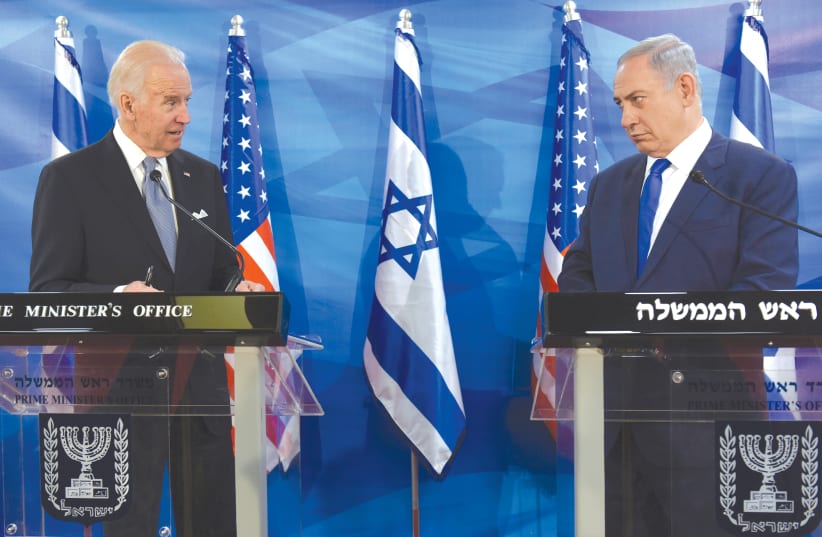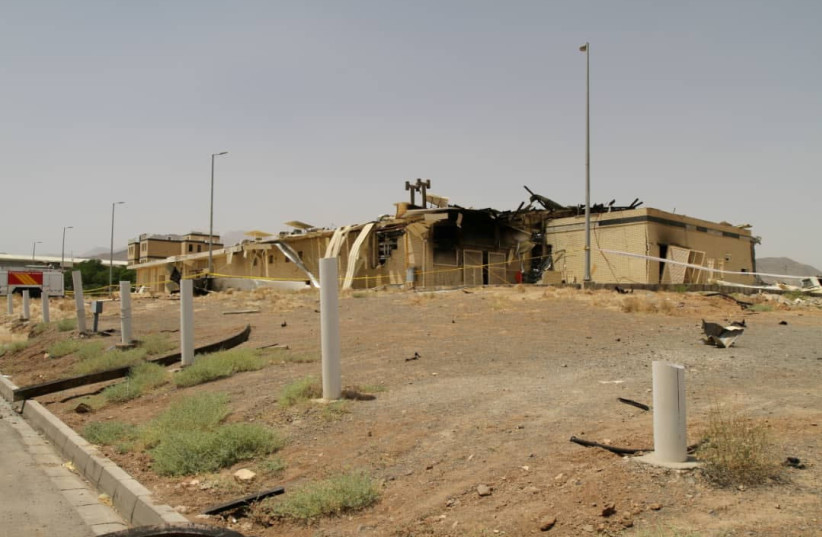Prime Minister Naftali Bennett and US President Joe Biden face a major gap in intelligence sharing left by former prime minister Benjamin Netanyahu, according to The New York Times.
Israel says Iran is getting closer to obtaining the materials needed for a nuclear weapon and that a military option must be prepared. US officials continue to express a preference for a diplomatic solution.
Netanyahu worked closely with the administration of former President Donald Trump, but when Biden assumed office, intelligence sharing between the two countries was significantly reduced, according to the report.
When Israel allegedly attacked the Natanz nuclear facility in April, for example, the Mossad supposedly gave the US less than two hours notice before the blast, US and Israeli officials told the Times, leaving the US no time to assess the operation or ask for it to be called off.
Senior Biden administration officials said the Israelis had in some way violated an unwritten agreement to at least advise the US about covert operations, and CIA Director William Burns called former Mossad director Yossi Cohen to express concerns about the move. The late notice was due to operational constraints and uncertainty about when the operation would take place, Cohen said, according to the report.
Netanyahu had ordered his national security officials to reduce the amount of information they conveyed to the US about planned operations in Iran, and Israeli officials said this was done because Americans had leaked information about some Israeli operations, although US officials denied this, the report said.
The Biden administration had been inattentive to their security concerns and too focused on returning to the Iranian nuclear deal, other Israel officials told the Times.
The US has sources of information on Iran, such as electronic eavesdropping by the National Security Agency, but it lacks the resources that Israel has, such as an in-country spy network.
Intelligence sharing declined during the Obama administration as well, which kept the existence of the negotiations with Iran a secret from Israel, a former administration official told the Times, although Israel learned about the meetings from its own sources.
Netanyahu was convinced that US spy agencies had kept him under surveillance, a former Israeli official said.
During the Trump administration, however, cooperation increased dramatically. When the Mossad stole Iran’s nuclear archives in 2018, Trump and then-CIA director Mike Pompeo were the only foreign officials briefed in advance.
During meetings in late 2019 and early 2020, Cohen presented Trump administration officials with a new Iran strategy involving aggressive covert operations. Israel allegedly proceeded to launch a wave of covert operations, keeping the Trump administration informed about them, including cyber- and bombing attacks and the assassination of Iran’s chief nuclear scientist, Mohsen Fakhrizadeh.
The two countries also cooperated to kill former Islamic Revolutionary Guards Corps Quds Force commander Qasem Soleimani and an al-Qaeda leader who was hiding in Tehran, the Times reported.
That relationship cooled once the Biden administration took office and began efforts to return to the nuclear deal. Cohen attempted to repair the relationship with the US in his final months as Mossad chief, a senior Israeli official told the Times, promising a more transparent intelligence relationship.
The challenge facing Bennett as he meets with Biden is how to convince the US to allow Israel to continue its secret operations in Iran.
“The US and Israel must jointly identify the redlines so that if Iran crosses them, Israel can act to prevent it from achieving military nuclear capacity,” Maj.-Gen. Aharon Zeevi Farkash, a former director of Israeli military intelligence, told the Times.
Defense Minister Benny Gantz on Wednesday said Iran was just two months away from acquiring the materials needed for a nuclear weapon.
Israel is advancing its operational plans due to the progress of Iran’s nuclear program, IDF Chief of Staff Lt.-Gen. Aviv Kohavi said.

